How can the Civil Code clarify vindication and negation claims?
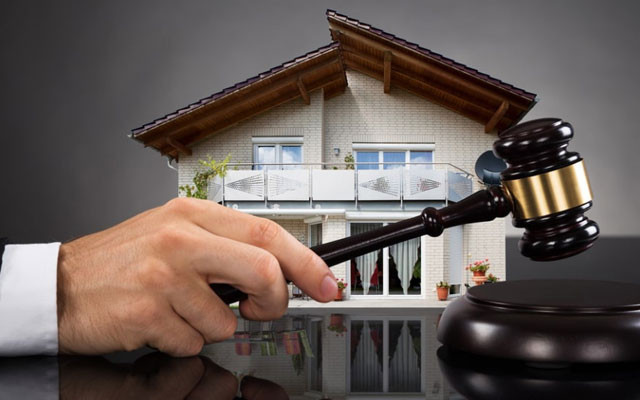
Pursuant to Article 387 of the Civil Code, the owner has the right to reclaim his property from a person who has illegally, without an appropriate legal basis, taken possession of it. When there are obstacles to the exercise of the right to use and dispose of their property, the owner has the right to demand their removal (Article 391 of the Civil Code).
In order to distinguish between these claims and form a unified court practice, the Verkhovna Rada registered Draft Law No. 11502 of 19.08.2024 «On Amendments to the Civil Code of Ukraine to Clarify Vindication and Negative Claims».
The author of the legislative initiative proposes to clarify that the purpose of a vindication claim is to return the property to the owner's possession. And such a claim is filed in respect of an individually identifiable thing that is in someone else's possession illegally. However, a negative claim is filed in respect of property that is in the possession of the owner (possessor) if another person interferes with the use or disposal of this thing and there are no legal grounds for the obstacles created.
After analyzing the draft, the Ukrainian National Bar Association's Committee on Civil Law and Procedure noted that the legislation does not contain the concept of «purpose of the claim», so it is inappropriate to use it in Article 387 of the Civil Code.
Article 16 of the Civil Code provides for the possibility of protecting civil rights and interests by the court, and also defines the following methods: recognition of the right; invalidation of the transaction; termination of the action that violates the right; restoration of the situation that existed before the violation and some others. In addition, the court may protect a civil right or interest in another way established by an agreement or by law or by a court in cases specified by law.
Also, Article 175 of the Civil Procedure Code defines the content of claims as one of the mandatory elements that a statement of claim must contain: content of claims: method(s) of protection of rights or interests provided by law or contract, or other method(s) of protection of rights and interests that do not contradict the law and which the plaintiff asks the court to determine in the decision; if the claim is filed against several defendants, the content of claims against each of them.
The consequence of applying a judicial remedy in the context of Article 387 of the Civil Code is the return of an individually identifiable thing or property.
In addition, it is known from the theory of law that vindication can only apply to individually identifiable things. Although this is not expressly provided for in the CC, it is a doctrinal and practical (from court practice) provision. Therefore, in general, this is an element that can be taken into account in the draft law.
A similar situation exists with the consequences of reclamation of a thing - returning it to the owner's possession. This provision is also absent from the law, but it is a logical consequence of the application of this remedy. The UNBA called the need to enshrine in the Civil Code all the smallest and most obvious consequences of certain legally significant actions questionable.
If there really is a practical need to emphasize the consequences, part 1 of Article 387 could be worded as follows:
«The owner has the right to reclaim his or her thing (property), identified by individual characteristics, from a person who has illegally taken possession of it without an appropriate legal basis, which results in the return of such thing (property) to the owner's possession».
As for the negative claim, the UNBA's specialized committee reminded that in accordance with Article 319 of the Civil Code, the owner owns, uses, and disposes of his property at his own discretion.
The Grand Chamber of the Supreme Court in its decision of 23.11.2021 in case No. 359/3373/16-ц noted that possession as a factual state should be distinguished from the right to possession. In particular, the rights to own, use and dispose of property belong to the owner of the property, regardless of whether he is the actual owner or not.
The determining criterion for distinguishing between vindication and negative claims is the absence or presence of possession of the property by the plaintiff; the absence or presence of possession of real estate is determined based on the principle of registration confirmation of possession; the person to whom the ownership of the real estate object has been transferred acquires all the powers of the owner, including the right of possession.
Article 396 of the Civil Code also provides that a person who has a property right to someone else's property has the right to protect this right, including from the owner of the property.
Therefore, the amendments to Article 391 of the Civil Code proposed in the draft have no semantic meaning, as they duplicate the existing provisions of the Civil Code.
At the same time, the UNBA says, the issue of discrepancies in the conditions for the application of a negative claim has been left unaddressed. In particular, according to the literal meaning of the analyzed article, it turns out that such a claim is applicable only in case of violation of the right of use and disposal. Instead, it is obvious that it should be applied in case of violation of one of the rights - use or disposal (and not both).
Therefore, it would be worthwhile to focus on the completeness of Article 391 of the Civil Code and to restate it as follows:
«The owner of property has the right to demand removal of obstacles to the exercise of his right to use and (or) dispose of his property».
The full text of the comments and proposals of the UNBA Committee on Civil Law and Procedure to the Draft Law No. 11502 is available by the link.
Popular news

Discussion
Why lowering the age of marriage lacks legal logic
Although until 2012 there was a provision in family law that allowed children to marry from the age of 14 under certain circumstances, its return to Ukrainian law would contradict international obligations and the logic of criminal law.
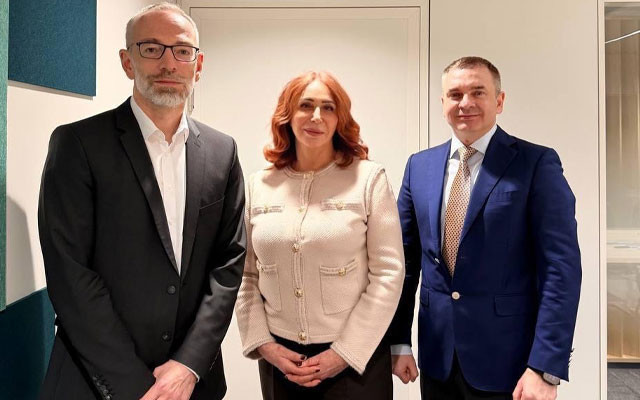
European integration
Open dialogue between the UNBA and the European Commission on the path to EU
The Ukrainian National Bar Association held a working meeting in Brussels with Mr Wolfgang Nozar, Head of Unit for Governance, Rule of Law and Financial Assistance, Directorate-General for Enlargement and Eastern Neighbourhood (DG ENEST), European Commission.

Self-government
A report on Ukrainian advocacy was presented in the European Parliament
Can a shadow report on advocacy replace the political framework of the Roadmap on the rule of law with demands for the restructuring of self-government? Where is the line between accountability and the seizure of institutions? And how can we respond to narratives with data rather than impressions?

European integration
UNBA and Ukraine's representation to the EU have synchronized their priorities
On February 5, in Brussels, the President of the UNBA, BCU Lidiya Izovitova held a working meeting with the Ambassador Extraordinary and Plenipotentiary of Ukraine, Representative of Ukraine to the European Union Vsevolod Chentsov.

Guarantees of the practice of law
Proceedings opened following attack on advocate in Dnipro
The Committee for the protection of advocates' rights and guarantees of legal practice of the UNBA appealed to law enforcement agencies in connection with an advocate's report of an attack while performing his professional duties. The information was entered into the Unified Register of Pre-trial Investigations and a pre-trial investigation was initiated.
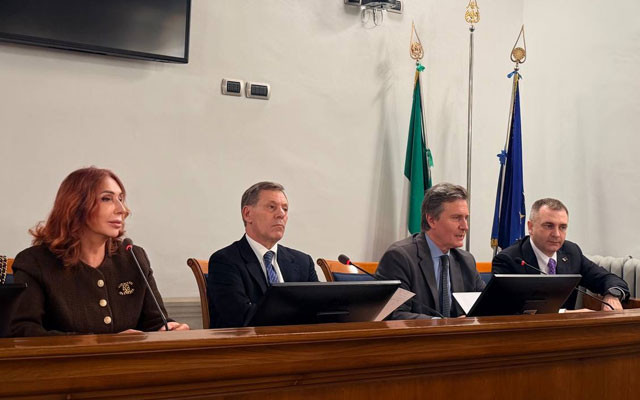
Interaction
«With us — to Europe»: Italian advocacy supports UNBA initiatives
On January 30, a meeting was held in Rome between a delegation from the Ukrainian National Bar Association and the National Bar Council of Italy (Consiglio Nazionale Forense, CNF) on the standards and practices of the legal profession and their significance for Ukraine's European integration process.
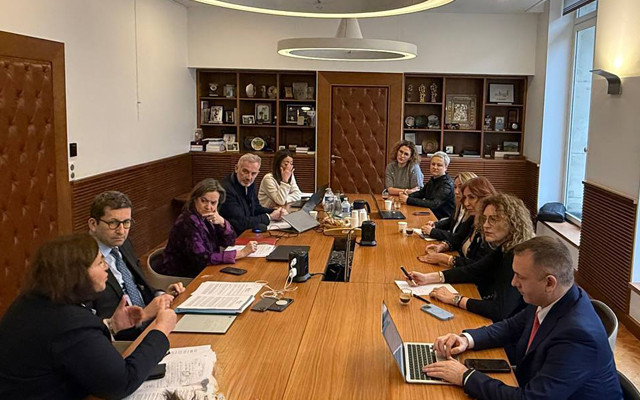
Interaction
France confirms cooperation with UNBA on reforms in the field of the rule of law
On January 29, a working meeting between representatives of the Ukrainian National Bar Association and the French National Bar Council (Conseil National des Barreaux, CNB) took place in Paris.
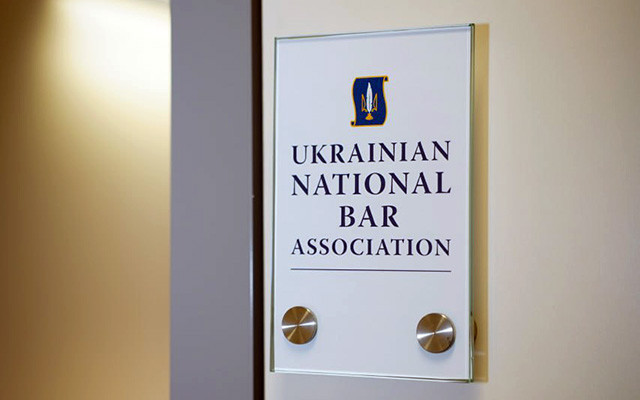
Abroad
UNBA office opens in EU capital
To strengthen the institutional presence of the Ukrainian advocacy community at the European level, an office of the Ukrainian National Bar Association has been opened in Brussels (Belgium), which will serve as a permanent platform for dialogue with European partners.
Publications

Volodymyr Matsko Extradition as a systemic form of rights violations

Victoria Yakusha, Law and Business The anti-corruption vertical cannot «take care» of the Bar as an institution, - acting head of the HQDCB

Censor.net Protecting advocates – protecting justice: addressing concerns about the new law

Ihor Kolesnykov A BRIEF SUMMARY REGARDING THE APPLICATION OF THE ORDER ON EXTENDED CONFISCATION IN LATVIA REGARDING FINANCIAL ASSETS OF…

Valentyn Gvozdiy WORKING IN A WAR ZONE

Lydia Izovitova Formula of perfection

Sergiy Vylkov Our judicial system is so built that courts do not trust advocates

Iryna Vasylyk Advocacy in the proclamation of Independence of Ukraine
